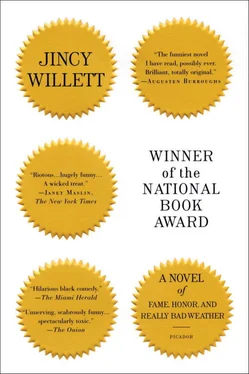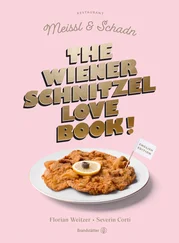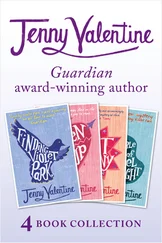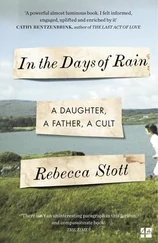Hilda’s idea, that Mother was our “sister,” is just stupid enough to be original with her, and not part of our terrible, post-celebrity mythology. Mother, for all her softness and vulnerability and innocence and maddeningly cavalier attitude toward the truth, was in no sense our sister. That she had given birth to us, and would precede us in death; that she had come before us, and made us possible; these were the central facts of her life, I think. More important to her, even, than her marriage, which was affectionate and enduring.
When she would tell us our birth-story, the true part about my being mistaken for a boy, she would always end by saying, “I knew you were both girls. I always wanted daughters.” She loved the phrase “my daughters,” and referred to us whenever possible, to the most casual stranger. She didn’t bore people with snapshots or cute stories. Often she didn’t even refer to us by name. Just: “my daughters.” Never “my children” or “my kids.” Her only sorrow was that there weren’t more of us. Now that I think of it, she was a modern mother. She said “my daughters” with exactly the sort of proprietary, foolish pride with which mothers of boys say “my sons.” Mother felt herself special, I think, because she had produced girls.
And though she wasn’t the sort of mother you could turn to for teenage guidance, for sensible maternal advice, she never wanted to be our girlfriend, to stay young with us, and when her modest beauty faded she took it cheerfully, as though it still existed, instantiated now in Abigail. She passed her beauty on to Abigail, and her love of books to me.
She was the oddest reader I’ve ever known, and in my line of work I’ve known quite a few. She had absolutely no taste. She would read everything, everything fictional, anyway. One week it would be The Cloister and the Hearth and the next week Claudia . She thrilled, really thrilled, to Moby Dick, and read passages aloud to us in a sonorous voice, a deep register unfamiliar to us, and as I remember it—we were eleven or so at the time—she didn’t skip over anything, and the chapters she found the most moving were the very chapters traditionally given the most attention by academics. And then, overnight, she was thrilling to King’s Row or Kiss Me Deadly or Leave Her to Heaven .
Mother and I talked about books. It was our way of loving each other, and the reading of the same book was our principal shared experience. The worlds we inhabited were very different; here we had a common text. Even after I grew up and became aware that Mother did not discriminate between art and trash, and that I needed to, I remained, forever, willing to read any piece of garbage she wanted me to, just for the pleasure, the cocoa-in-bed, Christmas-Eve pleasure, of sharing it with her.
And she didn’t like any old thing. She found depressing books depressing, horror stories unnerving; she was particularly critical of novels with uninteresting or inconsistent characters. “People don’t act like that,” she would say, and she was frequently right. But no matter how egregious the writing, she would always finish the book.
Reading was not an escape for her, any more than it is for me. It was an aspect of direct experience. She distinguished, of course, between the fictional world and the real one, in which she had to prepare dinners and so on. Still, for us, the fictional world was an extension of the real, and in no way a substitute for it, or refuge from it. Any more than sleeping is a substitute for waking.
When we were twenty-four I lived away from home, mostly. Abigail was a widow then, at home with baby Anna, and I was away at Amherst getting my degree in library science. That summer, though, the summer of ’62, I came home. It was the last time we four were together as a family. It was the summer Marilyn Monroe died.
I got up before Abigail one morning. (I got up before Abigail every morning.) I took my coffee outside, to the tiny gazebo Father had designed and built in the backyard.
Barely ten feet in diameter, it dwarfed his little lawn when he first set it up. Soon he dispensed with the lawn altogether and extended the garden borders up to the base of the gazebo, so that the structure appeared to rise like an island in a lily-choked pond. He set down flagstones so that we could get to the gazebo without trampling the dahlias, but his gardens were so lush that the flagstones were the devil to locate. Getting out to the gazebo was like a child’s game, and reduced you to a child no matter what your age.
The gazebo itself was beautifully constructed, ingeniously designed—to ludicrous effect, because of its scale. Father was an excellent craftsman, with no sense of proportion or perspective. The gazebo still stands, in what is now my backyard. It has weathered twenty-five years absurdly well. Professional office buildings have crystallized and disintegrated in Frome during that time; a major section of the interstate highway has been constructed and duly condemned and now partially rebuilt; in Providence an entire hotel has evolved from Platonic ideal in the minds of the city council to whorehouse and eyesore. And still my father’s gazebo stands, like the pyramids of Cheops, weathered to the bone and white with age, but too solid even to creak and sway.
Anyway, that morning I picked my way through the snapdragons and sat up on the railing, watching the bees, listening to the others stir within the house. I heard toilets flushing, and the sound of the Today show on TV, and a woman’s cry, “Noooo!”, I couldn’t tell whose, and the crash of breaking glass. Someone had dropped a china cup on the kitchen floor. After a long time Father came out the back door with his mug of coffee, and stood sipping it in the shade from the eaves. Usually he came right out to the gazebo on nice days, and took his breakfast with me. When he did emerge from the shade he walked deliberately toward me. There was a portentous hunch to his shoulders, and intuitively I braced myself for terrible news, although I couldn’t imagine what it could be. The telephone hadn’t rung. (It’s an indication of my youth and the youth of my country that it did not occur to me, that morning, that bad news could have come through the TV. Kennedy was still alive.)
He sat down in one of the painted wooden chairs, and I sat beside him in the other, and for a time we didn’t say anything. I was very frightened by whatever it was but in no rush to hear about it. The air smelled particularly good to me as I waited for him to speak, and the coffee tasted fine. A door was closing, and everything behind it was beautiful. Good-bye, snapdragons! Good-bye to simple animal mornings, to the life I’ve led. I’m needed at home, at childhood’s end.
Father’s voice when he finally spoke was pleasant, but there was a husky, nasal quality to it, as though he had a cold, which he didn’t. He said, “Marilyn Monroe is dead.”
I held myself perfectly still.
“Suicide,” he said. “She was all alone, poor thing.”
I gripped the broad, flat arm of the chair with one hand, and covered my mouth with the palm of my other hand. Covering my mouth was an instinctive act. I didn’t know whether I was doing it to hide my mouth, or hold it shut, or both.
“Abigail’s with your mother,” he said.
I was trying to abstract the things Father was saying: to get beyond the apparent non sequitur, to whatever awful thing had made somebody scream and drop a teacup. I made a geometrical problem out of them:
Marilyn Monroe is dead
Abigail is with Mother
Therefore:
What????
I tried algebra.
(M. M. is dead) + x = Childhood’s end
x = (Childhood’s end) - (M. M. is dead)
x = What????
Читать дальше












